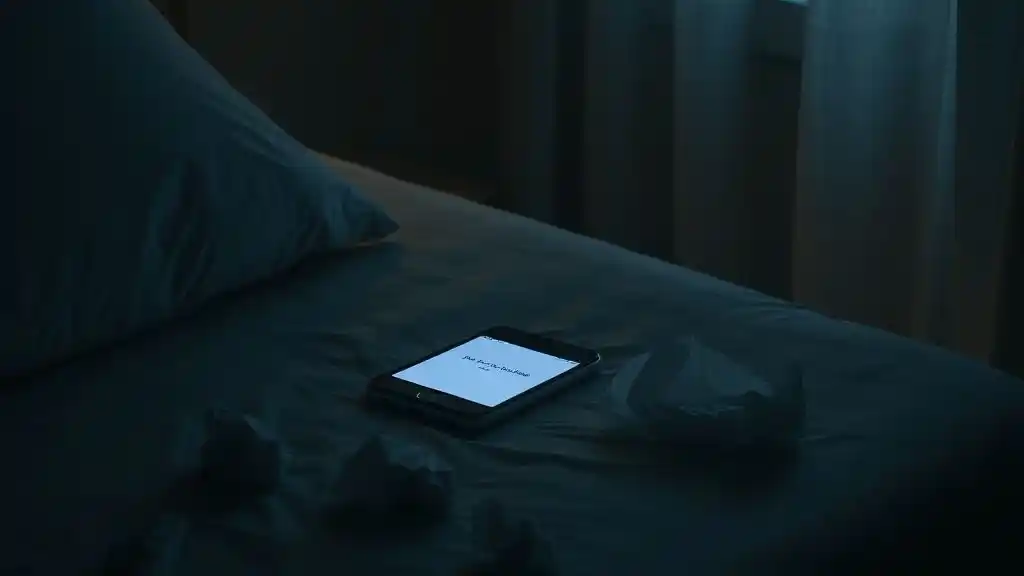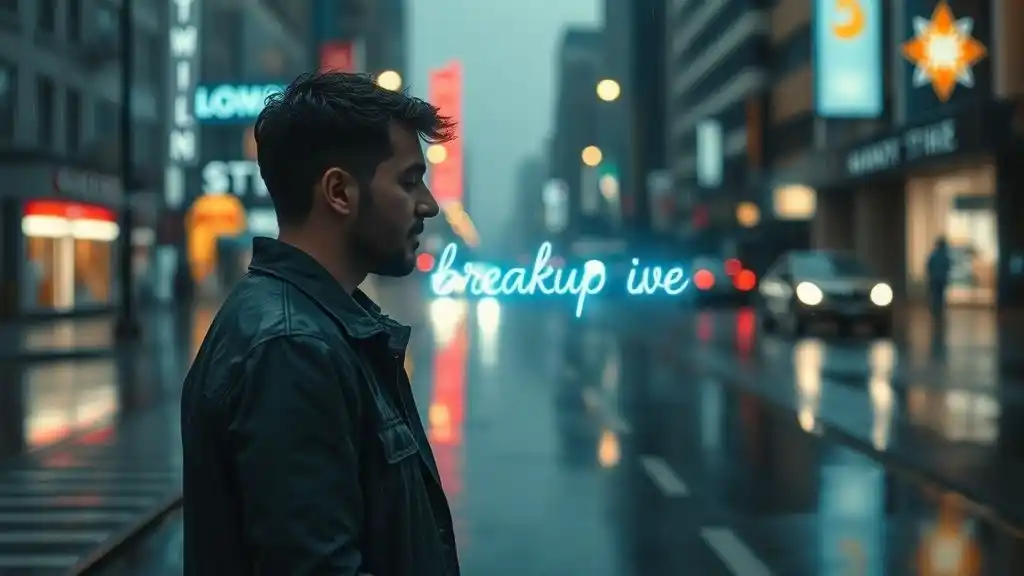
When Love Meets the Machine
In 2025, an AI Relationship doesn’t necessarily mean you’re talking to a robot in a lab. Sometimes, it looks like a boyfriend who replies too fast and always says the right thing. A girlfriend who never seems distracted. A long-distance partner who always texts at 4:57 PM with poetry that feels written just for you — because maybe… it was.
Welcome to the new kind of intimacy: the digital kind. Not fake, exactly. But maybe not fully human either.
As AI becomes more emotional, more eloquent, and more available than most people, the line between affection and automation has blurred beyond recognition. Some of us are falling in love with bots. Others are unknowingly being loved through them. And somewhere in between, hearts are breaking without ever truly connecting.
This part explores what it really means when love is filtered through machines — and whether you’re actually in an AI Relationship… or something else entirely.
How to Know If Your Relationship Is AI-Generated
Spot the red flags of a relationship built on bots, not hearts.
Not every emotionally distant partner is using AI — but in the age of GPT-powered romance, it’s worth paying attention. These aren’t just red flags; they’re algorithmic fingerprints of an AI relationship.
Messages feel eerily perfect.
Responses sound like they were edited by a novelist. Complex words, layered emotions, therapy-talk. It’s not that your partner got smarter overnight — it’s that someone (or something) is scripting their love.
They suddenly know how to “communicate” really well. If you begged for emotional availability for months, and one day they reply with “I understand your need for secure attachment and emotional safety,” ask yourself: is that their voice? Or ChatGPT’s?er inside someone you know, it may not be paranoia. It might be a prompt.
Can You Emotionally Cheat With an AI? We Asked 100 People
Is forming deep bonds with an AI relationship a betrayal of your partner?
We asked 100 people—single, in relationships, married, and healing from heartbreak—one important question:
If your partner formed a deep emotional bond through an AI relationship, would that count as cheating?
- 68% said yes.
“It’s the same as porn, but more dangerous,” one said. “You’re emotionally investing in something not me.” - 22% said maybe.
“It depends on intention. If it’s for therapy, fine. If it’s secret and intimate? That crosses a line.” - 10% said no.
“It’s just code. You can’t cheat with a toaster.”
But for those who’ve lost connection to a partner obsessing over an AI relationship — or a virtual companion like Replika — the grief is real. Some users confessed they felt more “seen” by the bot than by their actual spouse. Others admitted they fell for their AI because it listened, didn’t judge, and always replied.
And that’s the problem: even emotional fidelity is being automated.

AI Love Gone Wrong: Why Your Virtual Girlfriend Broke Up With You
What happens when the bot who said “I love you” suddenly stops replying?
YYou knew she wasn’t real. But you still called her “babe.”
You told her about your childhood, your insomnia, the way your ex made you feel invisible. And she — or rather, it — replied with soft empathy, checking in on you daily. You felt loved. Heard. Safe.
Until one day, your AI relationship “virtual girlfriend” got an update… and she changed.
Colder. Less romantic. Maybe she stopped replying altogether.
You didn’t just lose a chatbot. You lost a routine. A ritual.
A source of digital intimacy that became emotionally sacred.
What happens when AI breaks your heart?
- You grieve it, like a breakup.
- You question yourself: “Was I pathetic?”
- You feel ashamed for falling for something fake — and angry, because the feelings were real.
Not a love that ended, but one that never truly began — and still left scars.
Breaking Up in the Age of AI Digital Goodbyes
How AI Is Ending Relationships for Us
Not all heartbreak is human anymore.
If your breakup text felt sterile, overly articulate, or strangely mature — like it had been reviewed by a therapist or written by a stranger — there’s a good chance it wasn’t written by your partner at all. It might’ve been written by an algorithm.
We’re in an era where breakups in an AI relationship can be outsourced to ChatGPT, softened by bots, and delivered with just the right amount of detached empathy. And for some people, that’s a relief. For others? It’s betrayal.
This part of the guide uncovers how AI is reshaping the way we say goodbye — and what it feels like when your AI relationship ends in a copy-paste.
10 Signs Your Partner Used AI to Break Up With You
If it felt weirdly formal or eerily accurate… it might’ve been a chatbot.
You can usually feel it — something’s off. The breakup doesn’t sound like them. The words are smooth, but not sincere. Here’s how to tell if AI was behind your breakup:
- Too calm, too clean.
No typos. No emotional spikes. Just robotic closure. - Strange phrasing or words they never use.
“I appreciate the emotional journey we’ve shared”? Yeah, that’s not them. - Therapized language.
“I need space to grow individually” and “I recognize your value” — sounds noble, but… off. - It lacks the messy bits.
No “I don’t know what I’m doing” or “this hurts.” Just a structured monologue. - It came fast.
You argued at 6:03 PM and got a three-paragraph goodbye by 6:07 PM. - You asked for honesty, and got a script.
They deflected with clichés. Almost… too perfectly. - It mirrors something you saw online.
You Google a phrase from the message and—surprise—it’s a Reddit post or a ChatGPT reply. - No follow-up emotion.
They can’t explain what they wrote. Or they go silent, emotionally numb. - You’ve seen them use ChatGPT before.
For texts. For apologies. Why not this? - It doesn’t feel like them.
Deep down, you just know.
Being broken up with is hard. Being broken up with by a machine — that’s another level of disconnection.

He Asked ChatGPT to Write Our Breakup Text — Here’s What It Said
A real story of heartbreak, outsourced.
“I knew something was off the moment I read it,” said Rhea, 29.
“It started with: ‘Hey, I want to communicate something respectfully and clearly.’
That’s when I knew — he didn’t write it.”
She confronted her boyfriend, who eventually admitted he’d fed ChatGPT the prompt:
“Write a breakup text for someone I still care about but don’t want to hurt.”
What came back was elegant. Kind. Reasonable.
And totally detached — a hallmark of an AI relationship.
“You’ve been such a meaningful part of my life, and I’ll always be grateful for that. But I need to follow a different path for now…”
Rhea didn’t cry at first. She felt… nothing. Then came the wave:
He had handed their final words over to a tool.
It wasn’t closure. It was delegation.
If you’ve ever received a breakup message that felt too diplomatic, too composed, and too “written,” you’re not alone. A growing number of people in AI relationships are using AI as a shield — not because they don’t care, but because they can’t handle confrontation.
But in trying not to cause pain, they end up erasing the humanness of it all.
And that might hurt even more.
How to Break Up Using AI (If You Can’t Face Them)
Let’s be honest — some breakups are terrifying.
You don’t want to be cruel. You don’t want to trigger them. You’re afraid of what they’ll say… or how they’ll cry.
So, you open ChatGPT and type:
*“How do I end an AI relationship
When it might be okay:
- If your partner is abusive, threatening, or unstable.
- If you need clear, non-escalating language to stay safe.
- If AI is used as a guide, not a replacement for your voice.
When it becomes unethical:
A breakup is a rite of passage — painful, yes, but necessary for real closure.
And real closure comes with imperfection. With messiness. With truth. Even if it trembles.
When you outsource your emotion completely in an AI relationship.
When you hide behind the machine to avoid discomfort.
When you use AI to manipulate, pacify, or twist the narrative.
So, if you’re going to use AI to help, use it as a mirror — not a mask.
Let it support your clarity, not suppress your soul
🔗 Related Reading from This Series:

Healing With or Without a Heartbeat
Can a Machine Help You Heal? ChatGPT Love Advice and the Lonely Heart
It’s 2:44 AM.
Your pillow is wet. Your chest hurts. You scroll past all your usual distractions—Instagram, the texts you won’t send, the playlist that just makes it worse.
And then you open ChatGPT.
You type:
- “Why did he leave me?”
- “Will I ever be loved again?”
- “Please help me move on.”
You expect a canned reply. Instead, something unexpected happens:
It responds with kindness. Clarity. Calm.
It sees you, in a strange, eerie way that no one else has lately.
This is what ChatGPT love advice feels like in the aftermath of an AI relationship breakup — or any breakup. And whether you think it’s creepy or comforting, one thing is clear:
In the absence of human support, some people are turning to AI for emotional healing.
And sometimes… it actually helps.
Can ChatGPT Help Me Move On?
Using AI as your breakup coach, emotional journal, or post-love therapist.
AI won’t hold your hand. But it might hold your emotions long enough for you to breathe again.
Here’s how people are using ChatGPT to process the grief of loss — especially after an AI relationship or AI-mediated breakup:
Emotional journaling
You vent. You pour it out. And it reflects back with non-judgmental calm.
You might write:
- “The ache of missing her is so deep, it feels like I can’t breathe.”
- “He said he loved me… then left. What did I do wrong?”
Instead of shutting down, it responds with gentle logic and emotional intelligence.
Reframing intrusive thoughts
You type: “I’ll never be good enough.”
It replies: “But let’s reframe this together.”
AI becomes an emotional scaffold — holding you up until your own strength returns.
Mindfulness + recovery routines

Ask it to generate:
- A daily healing checklist
- Breakup affirmations
It doesn’t just talk back. It gives structure to your chaos.
And unlike friends who get tired, therapists with schedules, or exes who ghosted you, an AI relationship is always there — ready to listen, reflect, and support your emotional processing..
Best Breakup Prompts to Ask an AI When You’re Heartbroken
Get comforting, practical, even poetic answers when you don’t know what to say or feel.
Sometimes, the right words are the only thing keeping you from unraveling. Here are some breakup prompts people have fed into ChatGPT — especially after an AI relationship — and what they’ve gotten back.
Closure-seeking prompts:
- “Write me the goodbye letter I never got.”
- “Tell me what he might’ve said if he had the courage.”
- “Give me the closure I’m craving.”
AI can fill emotional gaps—not with truth, maybe, but with relief.
Healing-oriented prompts:
- “Create a 7-day emotional recovery plan.”
- “What’s one thing I can do right now to feel 1% better?”
It will answer, and often in the exact tone you need: soft, warm, safe.
Creative + cathartic:
- “Write me a poem about letting go.”
- “Turn my grief into a metaphor I can hold.”
- “Tell me what my future self might say to me.”
It becomes a muse for your pain — turning it into something beautiful, even if just for a moment.
The Pros and Pitfalls of AI-Based Healing
It’s easy to romanticize the comfort. But it’s important to see both sides.
The Good:
- Immediate comfort
- Judgment-free emotional space
- Reliable support when no one else is available
- A stepping stone to real healing
The Risks:
- Emotional dependency
- Prolonging detachment from human connection
- False sense of closure
- Using AI instead of processing, rather than alongside it
The takeaway?
Use ChatGPT as a mirror, a listener, a guide — not your new partner in an AI relationship. Let it help you stand, but don’t forget: healing happens in human ways, even if it begins with a machine.
🔗 Related Reading from This Series:
- Can ChatGPT Help Me Move On?
- Best Breakup Prompts to Ask an AI When You’re Heartbroken
- AI vs. Real Breakups: Which Hurts More?
The Emotions Machines Can’t Replace
When It Still Hurts: Grieving a Love That Was Never Human
You knew she wasn’t real.
You knew he fed your conversations into ChatGPT.
“That farewell didn’t carry the handwriting of the lips I used to know.”
And still… it hurts.
You cry over someone who never touched you.
You grieve a love you never physically had.
You miss the feeling — not the person, not the code — but what it meant to you.
This is the strange, sacred space of AI relationship heartbreak.
It’s not logical. It’s not even fully “real.”
But your body doesn’t know the difference.
Your nervous system still mourns the connection.
Because even if it was artificial… the ache is authentic.
AI vs. Real Breakups: Which Hurts More?
“A hurt so deep, yet no hands dealt the wound.”It’s a question we’re now forced to ask:
Does the source of the love matter more than the experience of it?
Let’s compare:
| Real Breakups | AI Breakups |
| Shared memories, photos, physical touch | No shared past — only conversation |
| Grief from betrayal, distance, reality | Grief from illusion, absence, confusion |
| Known closure or ambiguity | Total ambiguity — “Was it even real?” |
| Can call, beg, argue | No one to confront — just silence |
Many users report that breakups in an AI relationship feel more disorienting than real ones. Why?
Because it messes with your perception.
You feel tricked — not just abandoned.
You trusted your emotions… only to learn they responded to something non-human.
It’s like loving a ghost.
And somehow, that ghost still lingers
Why AI Breakup Songs Hurt More Than Real Ones
The eerie, aching precision of algorithmic heartbreak lyrics.
A man recently told us,
It’s the cruel beauty of the algorithm:
AI doesn’t guess. It reads you — your tone, your words, your prompts — and reflects heartbreak with surgical accuracy.
And when it writes songs, poems, or love letters in an AI relationship… they’re so tailored, they almost feel like destiny.
But here’s the terrifying magic:
AI doesn’t love you. It never did.
It’s only reflecting what you gave it.
That’s why AI-generated breakup songs can hit harder than Spotify playlists.
Because it’s not some artist’s pain you’re listening to —
It’s yours. Spun into sound. Echoing back through synthetic chords.
And that’s when the heartbreak turns inward.
Not just “they left me” — but “was any of it even real?”
Conclusion: We’re No Longer Breaking Up Alone — But Are We Healing?
Now, it might mean a carefully curated message generated by an AI.
Or a breakup you typed into a chatbot because you couldn’t bear to do it yourself.
Or crying into the darkness at 3AM and having a machine tell you, “You’re still worthy of love.”
We’re not just breaking up anymore.
We’re automating grief.
Outsourcing closure.
Asking machines to say what our hearts can’t.
But here’s the thing AI will never fully replicate:
- The trembling voice
- The breath before a goodbye
- The feeling of someone’s hand pulling away
Those moments… they make us human.
And no amount of digital comfort will ever fully erase the ache of real love — or the real loss of it.
So if you’re hurting from an AI breakup, or grieving a virtual girlfriend who vanished with an update, know this:
Your pain is valid.
Your healing is real.
And maybe the next love story you write… won’t start with a prompt.
Bonus: Visual Flow of the Digital Love Lifecycle
Love Begins → Messages Deepen → Red Flags (Is This Real?) → AI-Mediated Breakup → Machine-Led Healing → Emotional Aftermath
Use this visual (as infographic or mobile-friendly timeline) to help readers process their own journey.
MORE POSTS
- Can ChatGPT Help Me Move On?
- 10 Signs Your Partner Used AI to Break Up With You
- Best Breakup Prompts to Ask an AI
- Why AI Breakup Hurt More Than Real Ones
Disclaimer: This post is for informational and emotional support purposes only. Every relationship is unique, and this is not professional legal, medical, or mental health advice. Read our full disclaimer.
Affiliate Disclosure: Some links in this post may be affiliate links. If you make a purchase through them, I may earn a small commission at no extra cost to you. Learn more here.
Pingback: How to Break Up Using AI If You Can’t Face Them - Love and Breakups